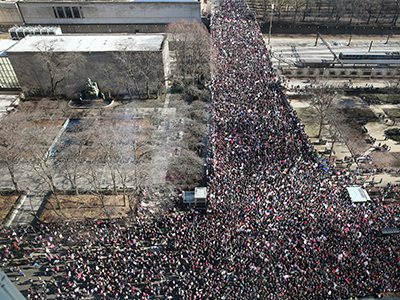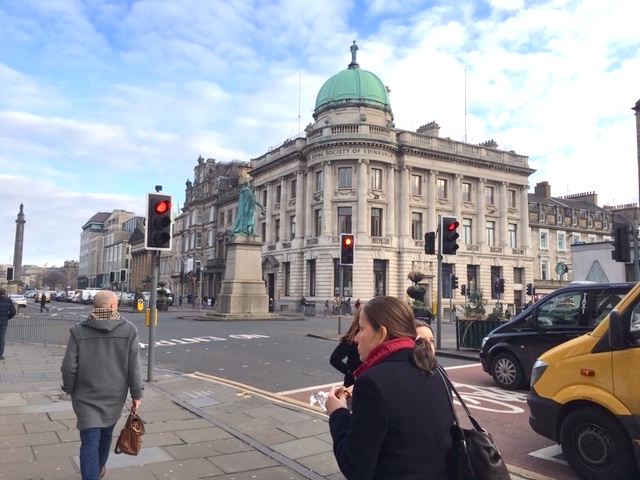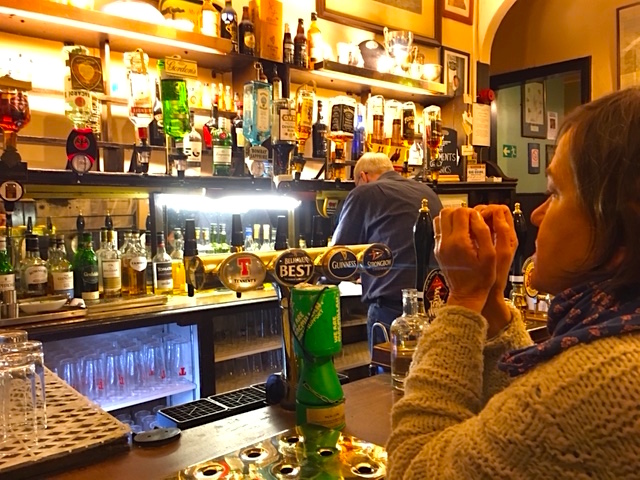I love this group. No one loves this group more than I do.
January 26, 2017 • 53 Comments • Posted in careers/jobs for people who are blind, guest blog, memoir writing, politics, travel, UncategorizedLast week the prompt for my Wednesday memoir-writing class was, “How I Got through a Transition in Life that Wasn’t my Choice.” An overwhelming number of Chicagoans had voted against the new president, so I reasoned a lot of my writers might be concerned about Friday’s inauguration. “For next week I want you to look at one of these transitions, — a relationship that split up? leaving a job? moving somewhere? — that you didn’t want to have happen. Tell readers how you managed to survive it.”
Writers came back with stories of divorces, career changes, and job lay offs. Some wrote about advice from experts getting them through. For others it was help from family and friends. Letter-writing campaigns. Sheer determination.
And then came Sharon Kramer’s turn to read. Sharon was one of many women in class who’d participated in Chicago’s Women’s March last Saturday, and the essay she read aloud in class told us that when all else fails, she turns to parody:
My Transition to Alternative Facts
by Sharon Kramer
Abraham Lincoln was the 5th president of the United States. The most popular sport in the United states is table tennis. Lake Michigan is slightly larger than the Atlantic Ocean but not as salty.

She’s in there!
You know those pesky things called facts? Remember them? A fact is something that has really occurred or is actually correct. Boring! Only losers believe in facts.
So, what is an alternative fact and is it ok to change reality in favor of this new kind of fact? Our esteemed president and his staff seem to think so. Me too. I happen to love alternative facts. It makes my life better. I mean really better.
But now as to why I am here. I want to address you, my classmates, the largest audience ever gathered of any writing class in the history of this great country. Really. This is a HUUUGE class. Thank you for coming. Much bigger than any class attended by Barack Hussein Obama or Lying Hillary.
I also want to let you know that I created a wonderful story for you today but gave it to our Renaissance Senior Center director to edit because Beth was out of the country and it was leaked to the lying press and I had to destroy it — for security reasons. Because I truly want to protect our great country as well as our Senior Center. I love this Senior Center. No-one, no-one, loves this senior center more than I do. I have sacrificed a lot for this place. For example, just today I gave up my Zumba class to be here with you.
You will be happy to know that as soon as my story is released, I will read it to you. You will be shocked at how great it is. Really. It is beautiful. Incredible. Beth would have loved my story and definitely posted it on her blog. The comments would have been extraordinary. Probably the most amazing comments she has received from any story on her blog — ever.
Don’t be upset though, for next week I will write another brilliant story and be able to share it with this incredible group of people. I love this group. No one loves this group more than I do. The story you will hear next week will make you laugh and cry at the same time. It will be flawless — a new standard for the written word and the unwritten word. And, with the support of the millions of people who love me, I am declaring this day next week — when I read my story – as a new holiday: National Writer’s Day in honor of me.
In the meantime, enjoy your weekend, you wonderful writers.
Signed: Sharon, a 25-year-old, 5 foot 10 inch, gorgeous blond bombshell, weighing in at 105 pounds and loving the alternative fact world.





